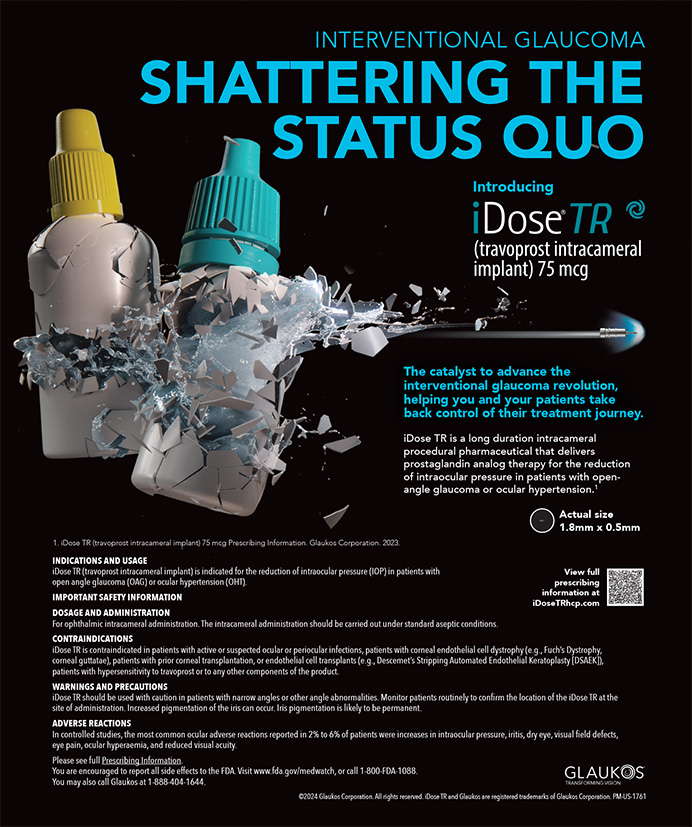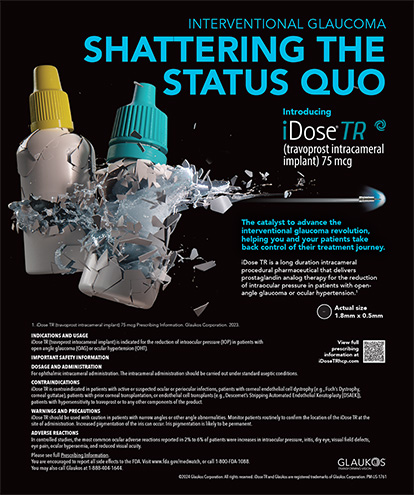
This month’s installment of “Residents and Fellows” comes from Drs. Pandey and Sharma. They offer valuable pearls for the young ophthalmologist—from personal enrichment to building a practice and dealing with increasing patient loads and the eventual difficult patient. Keep an eye out for part two of this installment in another issue of CRST.
—Section Editor Sumit “Sam” Garg, MD


There are many important aspects to being the best at anything. In this article, we set out five secrets to achieving greatness as an ophthalmologist and provide the keys with which you can unlock them! You will not want to miss part two.

WHAT ARE THE QUALITIES OF THE BEST OPHTHALMOLOGIST?
A good doctor needs to be a people person at heart and someone who enjoys interacting with different kinds of individuals. He or she needs to be truly skilled in fine ophthalmic surgery; it has evolved to a very high level of precision during the past few years, and therefore, patients’ expectations have also risen dramatically. However, in this competitive and demanding world, both the science and technique as well as the art of satisfying patients are important. Although it is quite enough to be a competent surgeon and achieve good results, to excel, one has to learn excellent communication skills and strive constantly to give superior surgical results as well as the best overall experience for patients.

HOW CAN YOUNG OPHTHALMOLOGISTS ACQUIRE THESE QUALITIES?
Young ophthalmologists first and foremost need to learn and fine-tune their surgical skills as best as they can. The earlier, the better. At a young age, without the additional responsibilities of family and children, it is possible to travel to different locations to receive top-notch training. Good surgical training is the bedrock, and no ophthalmologist can do without it. Young ophthalmologists should also make it a habit to observe their seniors interacting with patients, particularly difficult and demanding ones. Physicians with plans of having their own private practice need to know the basics of financial planning and administration. It is worthwhile to observe the facilities that are provided in good practices as well as the small things that can make a significant difference to patients’ overall satisfaction.

HOW CAN THESE QUALITIES HELP YOUNG OPHTHALMOLOGISTS START AND RUN A NEW PRACTICE?
By default, most young ophthalmologists end up starting their own practices, although practice patterns are now changing rapidly, with more emphasis on group practices, shared facilities, etc. When starting a new practice, physicians often realize that residency training has not adequately prepared them! When running a new ophthalmic practice, the ophthalmologist needs to go beyond clinical and surgical ophthalmology to truly satisfy and manage patients and, beyond that, to run an efficient, financially viable, growing practice. It has been said that “the education of the doctor, which goes on after he has his degree is the most important part of his education.” At this stage, ophthalmologists need to keenly and quickly learn the basics of practice management in terms of staffing, administration, providing the right ambience, marketing, communication, and patient-handling skills. In short, they need to hone their surgical skills during training but also focus on the “soft skills” of running a successful practice. In addition, in today’s world, where everyone is extremely busy and has little spare time, the doctor should learn to respect patients’ time, and the waiting period should be as short as possible. Maintain the appointment times given to the patients.

HOW DOES ONE MANAGE A HIGH-VOLUME PATIENT WORKLOAD?
If the surgeon is fortunate enough to have a high volume of patients, it often becomes a challenge to devote enough time to each patient to fully satisfy him or her. Here, effective communication skills become very important. The surgeon must give all of the necessary and relevant information in a short visit and use chair time most efficiently. Even so, there will be patients who need repeated explanations and extra guidance. In such cases, surgeons must use the services of well-trained staff and counselors who can take over the work of explanations and can give patients more time, thereby reassuring them and answering all their queries. Depending on the workload and the practice setting, ophthalmologists can delegate many other tasks to the staff. For example, optometrists can do more than half the work, and trained technicians can perform investigations. However, it is important to continually motivate the staff to provide the best service to patients. At the same time, have printed brochures for all common diseases and facilities available in your clinic that give detailed information to the patients and attendants. Electronic medical record systems can also help in managing high-volume practices, when used efficiently.

HOW DOES ONE HANDLE DISSATISFIED PATIENTS?
Managing the unhappy patient is becoming an increasingly difficult but necessary art to master. Ophthalmologists must take part of the blame for raising patients’ expectations so high. Aggressive advertising, tall claims, and high surgical costs have convinced patients that eye surgery is a 5-minute wonder during which nothing can go wrong and after which the patient will have “supervision.” In this scenario, excellent counseling for all surgical patients is an essential first step. Chair time must be adequate to ensure that the patient’s expectations are realistic.
If, despite these efforts, a patient is dissatisfied with his or her results, the doctor must hear him or her out. Many irate patients cool down if they feel as if they have been heard and understood. It is unwise to brush aside complaints, even if they seem insignificant. Patients will seldom create much trouble if the doctor is respectful and sensitive. They will, however, become increasingly aggressive if the doctor makes them feel inferior or they get the impression that he or she is too rushed to listen to them. It goes without saying that surgeons must do their best to solve the cause of patients’ dissatisfaction and be financially considerate while doing so. n
Section Editor Sumit “Sam“ Garg, MD
• medical director, vice chair of clinical ophthalmology, and an assistant professor of ophthalmology at the Gavin Herbert Eye Institute at the University of California, Irvine, School of Medicine
• serves on the ASCRS Young Physicians and Residents Clinical Committee and is involved in residents’ and fellows’ education
• gargs@uci.edu
Suresh K. Pandey, MBBS, MS
• director at SuVi Eye Institute & LASIK Laser Centre, Kota, Rajasthan, India
• visiting assistant professor at John A. Moran Eye Center University of Utah, Salt Lake City
• visiting surgeon at the Sydney Eye Hospital, Save Sight Institute, University of Sydney, Australia
• +91 93514 12449; suresh.pandey@gmail.com
Vidushi Sharma, MD, FRCS
• director at SuVi Eye Institute & LASIK Laser Centre, Kota, Rajasthan, India
• +91 93514 12449; suvieye@gmail.com




